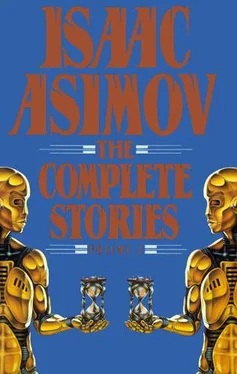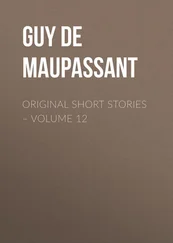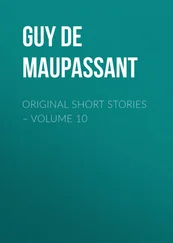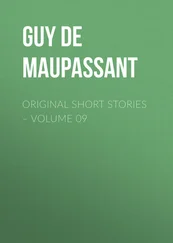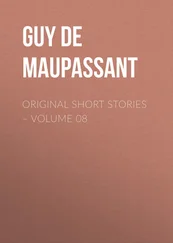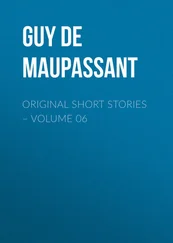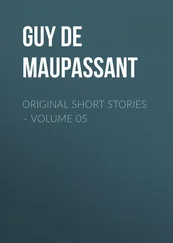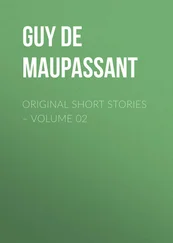Isaac Asimov - Short Stories Vol.1
Здесь есть возможность читать онлайн «Isaac Asimov - Short Stories Vol.1» весь текст электронной книги совершенно бесплатно (целиком полную версию без сокращений). В некоторых случаях можно слушать аудио, скачать через торрент в формате fb2 и присутствует краткое содержание. Жанр: Фантастика и фэнтези, на английском языке. Описание произведения, (предисловие) а так же отзывы посетителей доступны на портале библиотеки ЛибКат.
- Название:Short Stories Vol.1
- Автор:
- Жанр:
- Год:неизвестен
- ISBN:нет данных
- Рейтинг книги:4 / 5. Голосов: 1
-
Избранное:Добавить в избранное
- Отзывы:
-
Ваша оценка:
- 80
- 1
- 2
- 3
- 4
- 5
Short Stories Vol.1: краткое содержание, описание и аннотация
Предлагаем к чтению аннотацию, описание, краткое содержание или предисловие (зависит от того, что написал сам автор книги «Short Stories Vol.1»). Если вы не нашли необходимую информацию о книге — напишите в комментариях, мы постараемся отыскать её.
Short Stories Vol.1 — читать онлайн бесплатно полную книгу (весь текст) целиком
Ниже представлен текст книги, разбитый по страницам. Система сохранения места последней прочитанной страницы, позволяет с удобством читать онлайн бесплатно книгу «Short Stories Vol.1», без необходимости каждый раз заново искать на чём Вы остановились. Поставьте закладку, и сможете в любой момент перейти на страницу, на которой закончили чтение.
Интервал:
Закладка:
Arnold Potterley frowned darkly. Vicious lies, he told her, on the part of Carthage's enemies. He should have warned her. After all, such propa-
gandistic lies were not uncommon. According to the Greeks, the ancient Hebrews worshiped an ass's head in their Holy of Holies. According to the Romans, the primitive Christians were haters of all men who sacrificed pagan children in the catacombs.
"Then they didn't do it?" asked Caroline.
"I'm sure they didn't. The primitive Phoenicians may have. Human sacrifice is commonplace in primitive cultures. But Carthage in her great days was not a primitive culture. Human sacrifice often gives way to symbolic actions such as circumcision. The Greeks and Romans might have mistaken some Carthaginian symbolism for the original full rite, either out of ignorance or out of malice."
"Are you sure?"
"I can't be sure yet, Caroline, but when I've got enough evidence, I'll apply for permission to use chronoscopy, which will settle the matter once and for all."
"Chronoscopy?"
"Time viewing. We can focus on ancient Carthage at some time of crisis, the landing of Scipio Africanus in 202 B.C., for instance, and see with our own eyes exactly what happens. And you'll see, I'll be right."
He patted her and smiled encouragingly, but she dreamed of Laurel every night for two weeks thereafter and she never helped him with his Carthage project again. Nor did he ever ask her to.
But now she was bracing herself for his coming. He had called her after arriving back in town, told her he had seen the government man and that it had gone as expected. That meant failure, and yet the little telltale sign of depression had been absent from his voice and his features had appeared quite composed in the teleview. He had another errand to take care of, he said, before coming home.
It meant he would be late, but that didn't matter. Neither one of them was particular about eating hours or cared when packages were taken out of the freezer or even which packages or when the selfwarming mechanism was activated.
When he did arrive, he surprised her. There was nothing untoward about him in any obvious way. He kissed her dutifully and smiled, took off his hat and asked if all had been well while he was gone. It was all almost perfectly normal. Almost.
She had learned to detect small things, though, and his pace in all this was a trifle hurried. Enough to show her accustomed eye that he was under tension.
She said, "Has something happened?"
He said, "We're going to have a dinner guest night after next, Caroline. You don't mind?"
"Well, no. Is it anyone I know?"
"No. A young instructor. A newcomer. I've spoken to him." He suddenly
whirled toward her and seized her arms at the elbow, held them a moment, then dropped them in confusion as though disconcerted at having shown emotion.
He said, "1 almost didn't get through to him. Imagine that. Terrible, terrible, the way we have all bent to the yoke; the affection we have for the harness about us."
Mrs. Potterley wasn't sure she understood, but for a year she had been watching him grow quietly more rebellious; little by little more daring in his criticism of the government. She said, "You haven't spoken foolishly to him, have you?"
"What do you mean, foolishly? He'll be doing some neutrinics for me."
"Neutrinics" was trisyllabic nonsense to Mrs. Potterley, but she knew it had nothing to do with history. She said faintly, "Arnold, I don't like you to do that. You'll lose your position. It's-"
"It's intellectual anarchy, my dear," he said. "That's the phrase you want. Very well. I am an anarchist. If the government will not allow me to push my researches, I will push them on my own. And when I show the way, others will follow. . . . And if they don't, it makes no difference. It's Carthage that counts and human knowledge, not you and I."
"But you don't know this young man. What if he is an agent for the Commission of Research."
"Not likely and I'll take that chance." He made a fist of his right hand and rubbed it gently against the palm of his left. "He's on my side now. I'm sure of it. He can't help but be. I can recognize intellectual curiosity when I see it in a man's eyes and face and attitude, and it's a fatal disease for a tame scientist. Even today it takes time to beat it out of a man and the young ones are vulnerable. . . . Oh, why stop at anything? Why not build our own chronoscope and tefl the government to go to-"
He stopped abruptly, shook his head and turned away.
"I hope everything will be all right," said Mrs. Potterley, feeling helplessly certain that everything would not be, and frightened, in advance, for her husband's professorial status and the security of their old age.
It was she alone, of them all, who had a violent presentiment of trouble. Quite the wrong trouble, of course.
Jonas Foster was nearly half an hour late in arriving at the Potterleys' off-campus house. Up to that very evening, he had not quite decided he would go. Then, at the last moment, he found he could not bring himself to commit the social enormity of breaking a dinner appointment an hour before the appointed time. That, and the nagging of curiosity.
The dinner itself passed interminably. Foster ate without appetite. Mrs. Potterley sat in distant absent-mindedness, emerging out of it only once to ask if he were married and to make a deprecating sound at the news that he
was not. Dr. Potterley himself asked neutrally after his professional history and nodded his head primly.
It was as staid, stodgy-boring, actually-as anything could be.
Foster thought: He seems so harmless.
Foster had spent the last two days reading up on Dr. Potterley. Very casually, of course, almost sneakily. He wasn't particularly anxious to be seen in the Social Science Library. To be sure, history was one of those borderline affairs and historical works were frequently read for amusement or edification by the general public.
Still, a physicist wasn't quite the "general public." Let Foster take to reading histories and he would be considered queer, sure as relativity, and after a while the Head of the Department would wonder if his new instructor were really "the man for the job."
So he had been cautious. He sat in the more secluded alcoves and kept his head bent when he slipped in and out at odd hours.
Dr. Potterley, it turned out, had written three books and some dozen articles on the ancient Mediterranean worlds, and the later articles (all in "Historical Reviews") had all dealt with pre-Roman Carthage from a sympathetic viewpoint.
That, at least, checked with Potterley's story and had soothed Foster's suspicions somewhat. . . . And yet Foster felt that it would have been much wiser, much safer, to have scotched the matter at the beginning.
A scientist shouldn't be too curious, he thought in bitter dissatisfaction with himself. It's a dangerous trait.
After dinner, he was ushered into Potterley's study and he was brought up 1 sharply at the threshold. The walls were simply lined with books.
Not merely films. There were films, of course, but these were far outnumbered by the books-print on paper. He wouldn't have thought so many books would exist in usable condition.
That bothered Foster. Why should anyone want to keep so many books at home? Surely all were available in the university library, or, at the very worst, at the Library of Congress, if one wished to take the minor trouble of checking out a microfilm.
There was an element of secrecy involved in a home library. It breathed of intellectual anarchy. That last thought, oddly, calmed Foster. He would rather Potterley be an authentic anarchist than a play-acting agent provocateur.
And now the hours began to pass quickly and astonishingly.
"You see," Potterley said, in a clear, unflurried voice, "it was a matter of finding, if possible, anyone who had ever used chronoscopy in his work. Naturally, 1 couldn't ask baldly, since that would be unauthorized research."
Читать дальшеИнтервал:
Закладка:
Похожие книги на «Short Stories Vol.1»
Представляем Вашему вниманию похожие книги на «Short Stories Vol.1» списком для выбора. Мы отобрали схожую по названию и смыслу литературу в надежде предоставить читателям больше вариантов отыскать новые, интересные, ещё непрочитанные произведения.
Обсуждение, отзывы о книге «Short Stories Vol.1» и просто собственные мнения читателей. Оставьте ваши комментарии, напишите, что Вы думаете о произведении, его смысле или главных героях. Укажите что конкретно понравилось, а что нет, и почему Вы так считаете.
